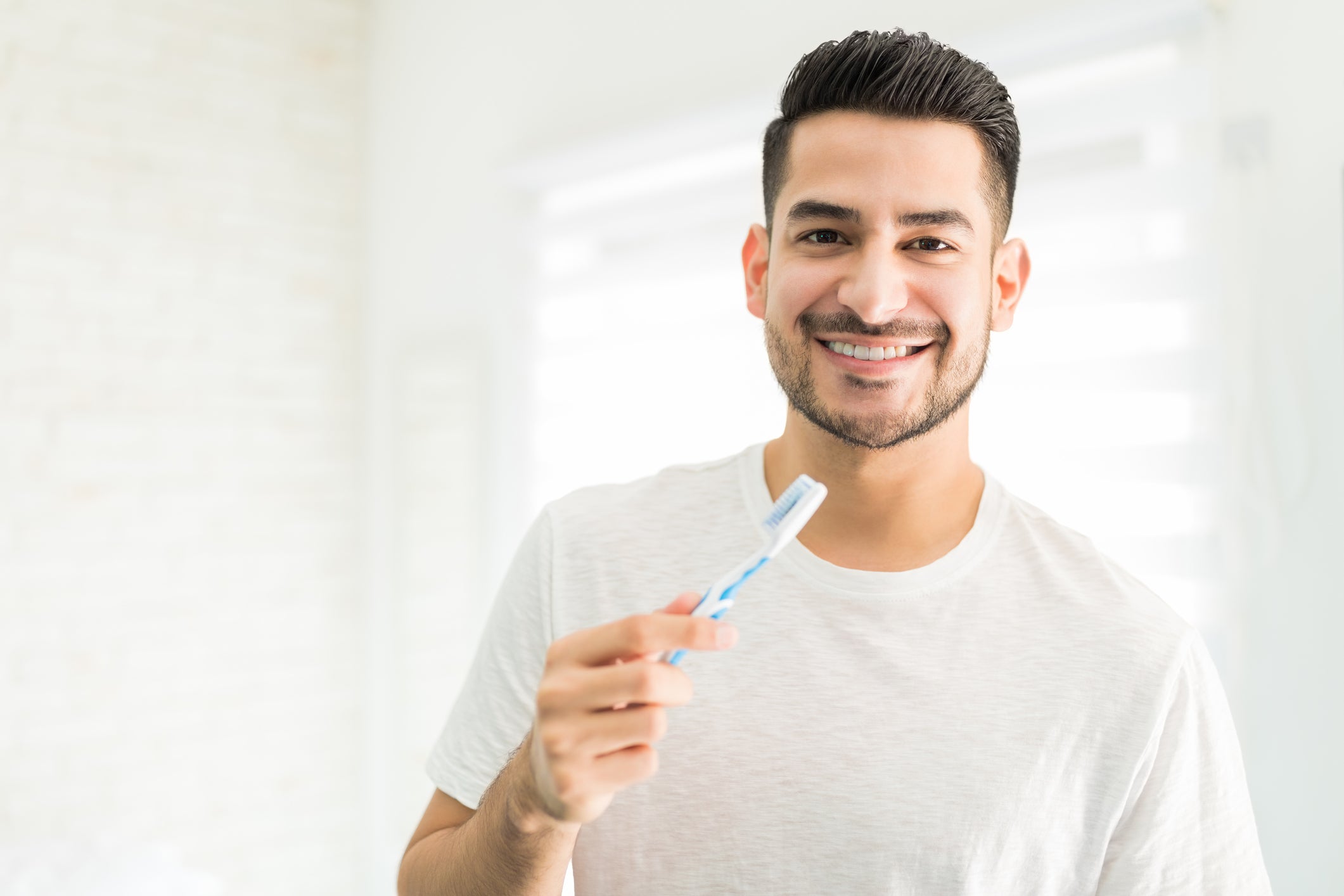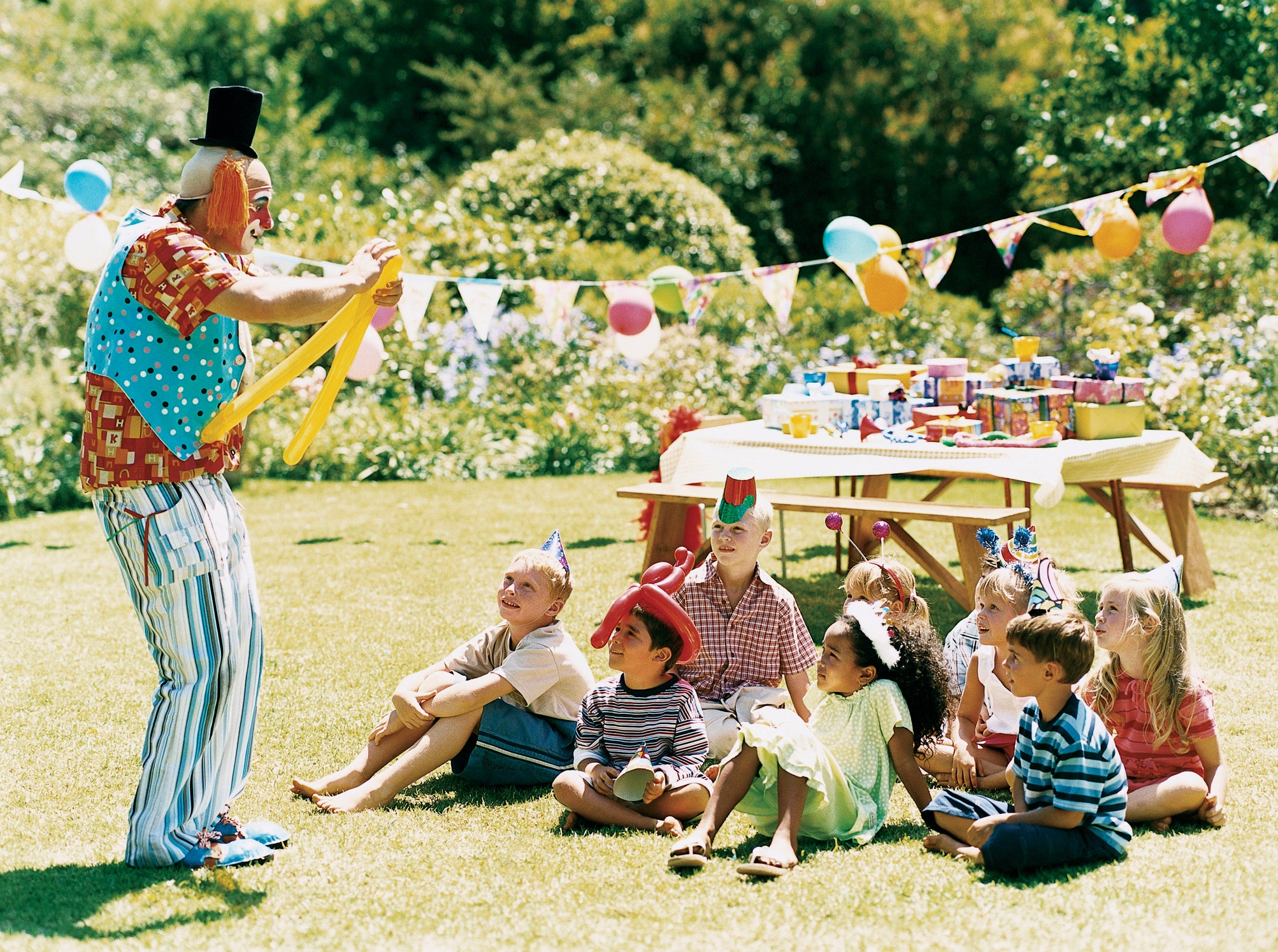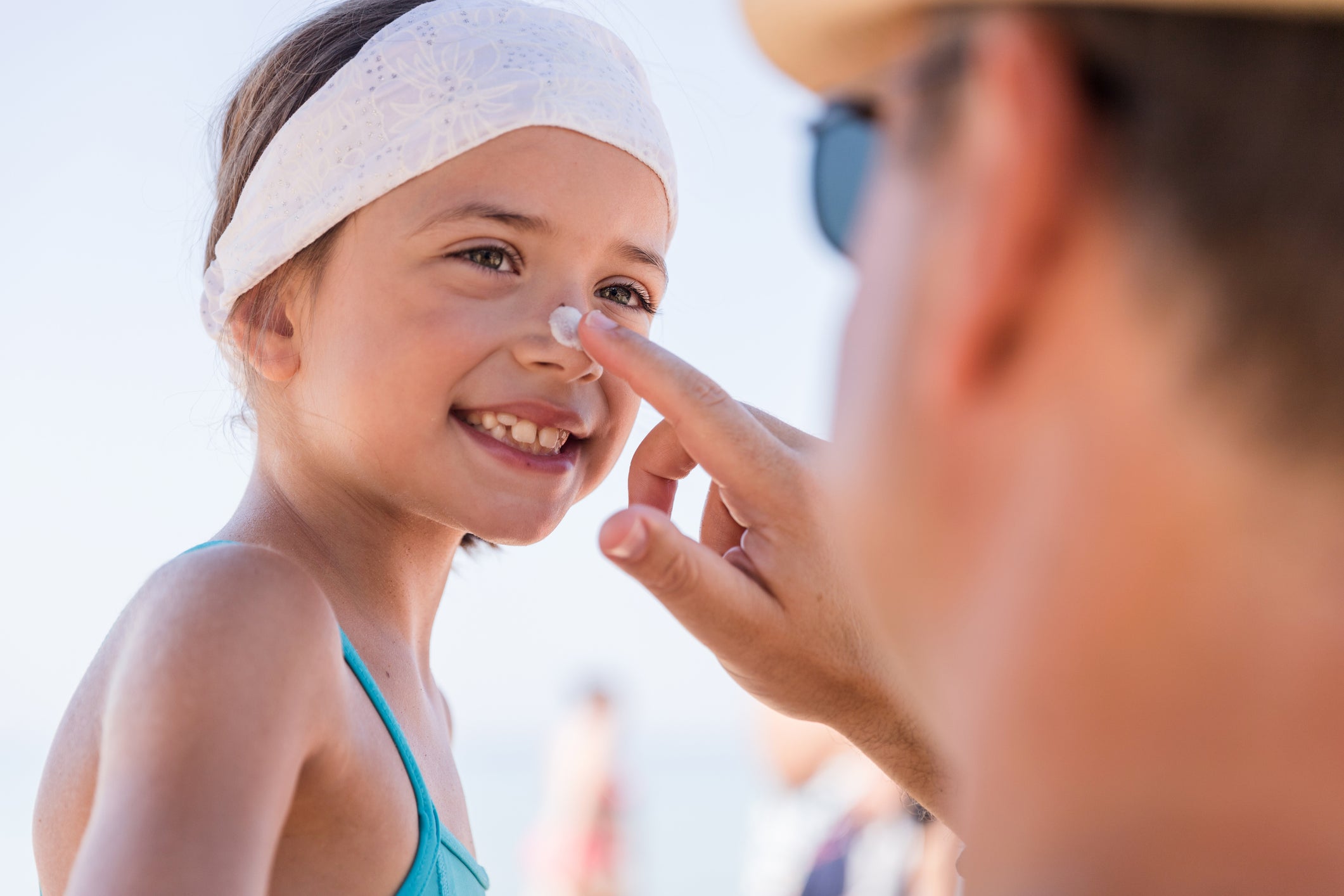-
How Taking Care of Your Teeth Can Impact Your Overall Health

You know that taking care of your mouth is important, so that you can maintain a healthy smile throughout your life. But did you also know that the health of your mouth has an impact on the rest of your body? Oral health is linked to overall health, so taking care of your teeth is vital. Here, we look at the ways taking care of your teeth can help keep your body healthy.
- How are oral health and overall health connected? It’s easy to think of your mouth and body as separate entities, especially since your dentist and doctor are separate. In fact, though, your whole body is a unit, and since the mouth is the primary pathway into the body, it is important to protect it. The mouth is full of bacteria, and some of these bacteria can cause disease. It’s easy for the bacteria in your mouth to enter your digestive and respiratory tracts, as well as entering the bloodstream through small injuries in the mouth. Without the right oral care, your body is vulnerable to illnesses. What’s more, certain diseases and the medications that are used to treat them can impact your oral health.
- What happens when you neglect your dental health? Inflammation and oral bacteria can increase your risk of certain conditions, including:
- Endocarditis- Bacteria from your mouth or other parts of your body spread through the bloodstream, they can cause an infection of the inner lining of your heart chambers.
- Cardiovascular disease- For reasons not entirely understood, it seems that heart disease, clogged arteries, and stroke are linked to inflammation and infections caused by oral bacteria. Periodontal disease, in particular, seems connected to stroke and clogged arteries, though which causes which has not been determined.
- Complications with pregnancy and birth- Periodontal disease is also linked to premature birth and low birth weight, as well as gestational diabetes, preeclampsia, and stillbirth.
- Pneumonia- When bacteria is pulled into your lungs, it can cause pneumonia and other respiratory ailments.
- What diseases impact your oral health?
- Diabetes puts your gums at risk by reducing the body’s resistance to infection, so people with diabetes are at a higher risk of gum disease. Further, when people with diabetes do get gum disease, it tends to be more severe. It is a reciprocal risk, though, because people who have gum disease have more difficulty controlling their diabetes.
- People who have HIV/AIDS often have oral problems. These include painful mucosal lesions.
- Osteoporosis causes a weakening of the bones. Unsurprisingly, it is linked with periodontal bone loss and tooth loss. Additionally, some of the medications used to treat osteoporosis can be damaging to the bones of the jaw.
- Alzheimer’s disease is connected to worsening oral health. This escalates as the disease progresses.
- What’s the best way to protect your whole body by taking care of your teeth? It starts with brushing your teeth twice a day with a soft-bristled brush and fluoride, and flossing at least once a day. Eat a nutritious diet, limiting sugar consumption, and do not smoke. Consider home dental care tools like mouthwash and a water flosser, and see your dentist twice a year. You might also want to see a periodontist once a year, and talk to your doctor about managing health conditions that could impact your oral health.
At the Center for Vasectomy Reversal, we care about our patients’ overall health, just as much as we care about their reproductive health. We pride ourselves on helping men improve their fertility through uncompromising, concierge-level patient care. Under the direction of Dr. Joshua Green, our team provides state-of-the-art treatment for men who need a reversal of their vasectomy or have other fertility concerns. To learn more, contact us through our website or call 941-894-6428.
-
Are Aphrodisiacs Real
 If you are looking for a way to improve your love life, you may be curious about aphrodisiacs. After all, certain foods and herbs have been the stuff of legends when it comes to the stories of the world’s great lovers. It is said that Casanova ate copious amounts of oysters to maintain his libido, and throughout history, many foods have been considered aphrodisiacs, from chocolate to berries, to artichokes. Is there any science behind aphrodisiacs, or is the power of these love enhancers all in your head?
If you are looking for a way to improve your love life, you may be curious about aphrodisiacs. After all, certain foods and herbs have been the stuff of legends when it comes to the stories of the world’s great lovers. It is said that Casanova ate copious amounts of oysters to maintain his libido, and throughout history, many foods have been considered aphrodisiacs, from chocolate to berries, to artichokes. Is there any science behind aphrodisiacs, or is the power of these love enhancers all in your head?With most popular aphrodisiacs, the libido boost is psychological. Some foods make people think of sex, and since we, as a species, are very suggestible, these foods can help stimulate desire. So, while those strawberries, oysters, and figs may not actually be aphrodisiacs, they are a “turn-on” for many people.
There is a little bit of science behind some foods considered aphrodisiacs. Nuts, grapes, and chocolate have all been shown to help with blood flow, and avocados help keep the hormones in balance. Pomegranates can improve testosterone levels in both men and women, and berries are linked to a reduced risk of erectile dysfunction. So, all of these foods can improve the physical ability to have sex, but they do not stimulate desire.
Alcohol, on the other hand, lowers inhibitions and can increase sexual desire. However, too much alcohol can diminish the physical ability to have sex. So, ironically, the things that make you better able to follow through are not necessarily what causes you to want to, while the substance that makes you want to can diminish your ability to follow through.
While foods don’t typically enhance libido, there are herbs that can definitely have an aphrodisiac effect. Ginkgo increases blood flow to the genitals and improves sexual function, ginseng can heighten sexual excitement, and maca can increase desire. Tribulus can help women get more interested in sex, and fenugreek can increase libido in men. Of course, before you take any herbs, it’s smart to talk to your doctor. Some herbs can actually be dangerous, and some can interfere with certain medications.
When it comes to food, sometimes the placebo effect is powerful, and if you think something is an aphrodisiac, it might work for you. Of course, part of the appeal of most aphrodisiacs is that they are food. Throughout history, bringing food to a loved one has been looked on as a romantic gesture, and this very act can stir sensual feelings. It makes sense, from a biological perspective. Food is necessary to provide energy needed to prolong stamina, and people who are healthy and well-fed have a better shot at reproduction. As fun as sex may be, in the end, the biological drive to mate comes down to building a family. If you want proof that feeding a mate is a universal phenomenon, all you have to do is look to the animal kingdom. There is a species of cricket that makes something like jelly to convince females to mate with them, and spiders catch flies to give to their lady loves in order to convince them to start a family.
At the Center for Vasectomy Reversal, we love helping people grow their families. We pride ourselves on helping men improve their fertility through uncompromising, concierge-level patient care. Under the direction of Dr. Joshua Green, our team provides state-of-the-art treatment for men who need a reversal of their vasectomy or have other fertility concerns. To learn more, contact us through our website or call 941-894-6428.
-
How to Throw a Children’s Birthday Party on a Budget

Children’s birthday parties are a beloved part of childhood, a time honored tradition, and with good reason. It’s natural to want to celebrate your little one, marking every milestone, and birthdays are a natural cause for celebration. These days, however, it’s easy to let a birthday party get out of hand. Whether you get carried away with the excitement of celebrating your child or you’re trying to keep up with the Joneses, before you know it, your budget is out the window. It doesn’t have to be that way, though. We have some great tips for throwing an amazing birthday party while sticking to your budget.
- Don’t feel pressured to throw a party every year. When kids are little, birthdays mean more to the parents than they do to the children. Consider taking your little one on a fun outing, rather than spending money on a party that won’t even be remembered. You might also think about having a birthday party every other year, and doing something special with a friend or the family on the alternate years.
- Keep parties small and intimate. You do not have to invite the whole class or even the whole soccer team to your child’s birthday party. It’s much more manageable to keep the guest list under 10 children. In fact, one good rule of thumb is to invite one child for every year of age. For a five year old birthday party, five kids is plenty.
- Be smart about timing. Don’t plan your parties for mealtime, when you’ll have to put out a whole spread. Instead, choose a time in between meals, when some simple snacks and a birthday cake or cupcakes will suffice.
- Make as much as possible yourself. Make your own invitations, either by hand, if you’re crafty, or digitally, if you’re not. There are plenty of cute invitations online, and it won’t cost you anything to send them via email. You can make your own cake or cupcakes, too, and if you want a themed cake, head to a cake decorating store and pick up some cheap decorations to stick on it. Putting together your own snacks and making your own decorations can also cut down on costs.
- Take advantage of available resources. Check out books or a DVD from the library to entertain the kids. Find some printables online that you can print out for free as a fun activity or decoration. Use things you already own to support your party theme. (Hint: pick a theme for which you know you already have supplies!) Borrow equipment if you want to do something special, like a backyard movie.
- Shop early for the best deals. Sites like Oriental Trading Company have great deals on party favors and décor, but you can’t order at the last minute. Plan ahead a little bit, and you will be surprised how much money you can save.
- Pick a party location that’s free. Your house is a great example, but if you don’t feel like your house is suitable for hosting, take some time to think about other free options. It might be a park, the beach, your subdivision’s pool, or a neighbor’s house, but you’re likely to find somewhere that will work perfectly. If not, look into cheap options like the local rec center.
- Provide an activity that doubles as a favor. Let kids do a craft or decorate cookies or cupcakes, then take those treasures home. This is cheaper than filling a goody bag, and the parents will thank you when there are not so many plastic trinkets floating around their houses.
- Choose classic games for simple fun. Old school games like musical chairs, hot potato, four square, duck duck goose, or red rover are big hits with young kids, and they don’t cost a thing. Not quite sure of the rules? Look for game instructions online.
At the Center for Vasectomy Reversal, we love watching people enjoy their families. We pride ourselves on helping men improve their fertility through uncompromising, concierge-level patient care. Under the direction of Dr. Joshua Green, our team provides state-of-the-art treatment for men who need a reversal of their vasectomy or have other fertility concerns. To learn more, contact us through our website or call 941-894-6428.
-
How to Teach Your Kids About Sun Safety

Parents have many important jobs, and one of them is to teach children about safety. We educate our kids on everything from eating healthy foods to safely crossing the street to protecting themselves from stranger danger. With all you need to teach your children about the dangers of the world, has sun safety made it into your lesson plan yet? It really should be one of the first things you teach, because protecting them from the sun early in life and teaching them to do it for themselves will go a long way in helping to keep their skin healthy for the rest of their lives. Here are some helpful tips for teaching your kids about sun safety.
- Teach them about the tools they’ll need for sun protection. It starts with sunscreen, of course, but sun protection goes further than that. Sun protective clothes and hats can provide help, and sunglasses can protect from the damage UV rays can do to the eyes. Teach kids to seek out natural shade or sit under an umbrella to help reduce their sun exposure.
- Explain how to apply sunscreen. Because it doesn’t work as well when it’s not properly applied, make sure your kids know that sunscreen needs to be slathered on, and buy products that are easy for them to apply, even without your help. Teach that wet or sweat means re-apply, and that sunscreen should be re-applied every two hours, even when they aren’t swimming.
- Talk about timing. Sun protection is great, but kids also need to know that UV rays are at their strongest between 10 am and 4pm. One way to make this concept come alive for kids is to play the shadow game. Have them look for their shadows, and explain that if they’re short, that means the sun is higher and stronger. Whenever they have short shadows, they should find a shady spot in which to play. The longer their shadows become, the more they can expand their play area.
- Give them reasons not to tan. As kids get older, your kids may become interested in tanning. According to a study by the American Academy of Dermatology, 63 percent of teenagers think they look better with a tan, 59 percent believe that people look healthier when they are tan, 43 percent of teenagers lie out in the sun to get a tan, 28 percent of female teens and 14 percent of male teens say they do not use sun block. Only 30 percent of teens say they use sun block when they lie out in the sun. Teach your kids that tanning is a sign of skin damage, and tanning beds are especially hazardous. If they insist, buy some tanning lotion so that they can safely tan their skin.
- Set a good example. If you want kids to wear sun screen every single day, they need to see you wearing sunscreen every single day. Modeling proper sun protection is the best way to teach your children that sun protection is important.
- Make sun protection fun. Let your little ones choose their own hats, sun glasses, and sun protective clothing, in fun patterns that will make them want to wear these items. You can also make sunray-sensitive jewelry together, stringing ultraviolet detection beads onto a piece of leather. Tie this around your child’s wrist or ankle, and explain that when the beads change color, it’s time to put on sunscreen. Sing a song like “head, shoulders, knees, and toes” as you apply sunscreen, talking about the areas of the body that people need a little help reaching, and which ones need the most sunscreen.
At the Center for Vasectomy Reversal, we love making the world better by helping people grow their families. We pride ourselves on helping men improve their fertility through uncompromising, concierge-level patient care. Under the direction of Dr. Joshua Green, our team provides state-of-the-art treatment for men who need a reversal of their vasectomy or have other fertility concerns. To learn more, contact us through our website or call 941-894-6428.
Recent Posts
Popular Posts
categories
- Uncategorized
- Sperm Retrieval
- vasectomy reversal
- Emergency
- Dr. Green
- sperm count
- fertility
- male infertility
- MESA
- medical care
- low sperm count
- IVF
- male fertility testing
- anesthesia
- pregnancy
- sperm aspiration
- semen analysis
- post-vasectomy pain syndrome
- infertility
- VE
- anti-sperm antibodies
- older dad
- general anesthesia
- gender reveal party
- post-operative infections
- baby name
- parent
- baby's first year
- fertilization process
- spinal anesthesia
- ACS Fellow
- nutrition tips
- concierge-level care
- fertility planning app
- azoospermia
- out-of-town patients
- V-V
- post-vasectomy reversal
- conceiving
- vasectomy
- vasoepididymostomy
- smoking
- sperm quality
- baby registry
- infographic
- surgical care
- surgical consultation process
- prostate cancer
- baby gender
- family time
- COVID
- Baby Shower
- Child Care
- Halloween Costume Ideas for Babies
- Halloween
- Halloween Safety Tips
- Celebrity Infertility Spotlight
- Postpartum
- testosterone
- Father's Day
- Father
- Men's Health
- Thanksgiving
- Pregnancy Announcement
- Parenting Tips
- Sperm
